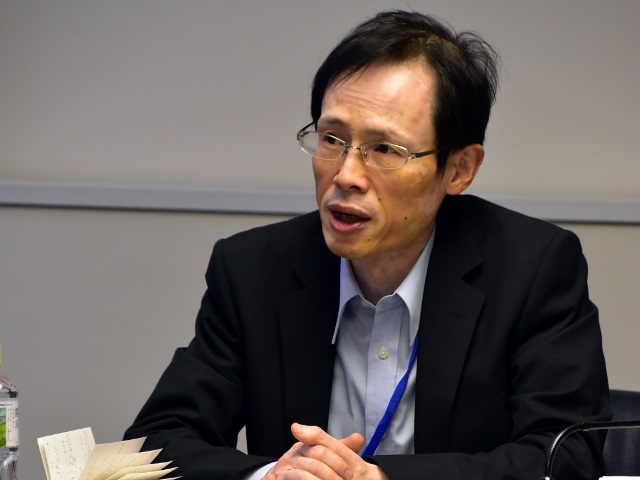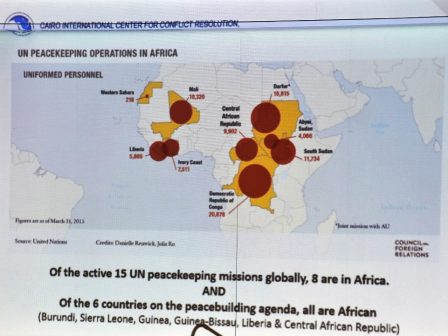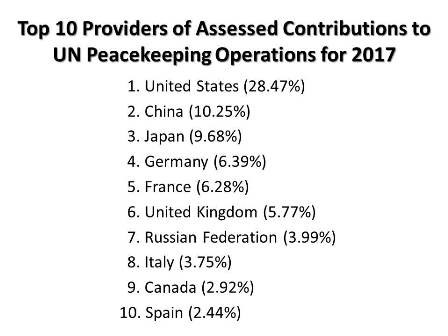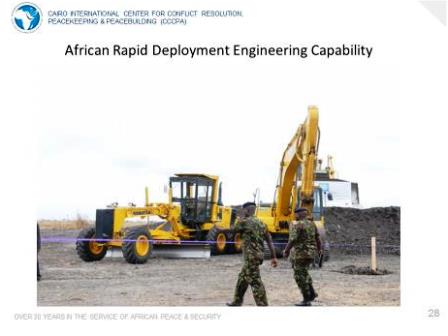In his opening speech to the consultation meeting held with Mr. Hatem Elatawy, Deputy Director of Cairo Center for Conflict Resolution and Peacekeeping in Africa (CCCPA), Director-General Noke indicated three salient developments concerning international peace cooperation.

In his opening speech at the consultation meeting held with Mr. Hatem Elatawy, Deputy Director of CCCPA on 25 August 2017 at the UN University, Mr. Masaki Noke, Director-General of the Secretariat of the International Peace Cooperation Headquarters, Cabinet Office of the Government of Japan highlighted three elements to consider in relation to Japan’s assistance to peacekeeping in Africa.
First, there are evolutionary changes taking place in PKOs. Currently, out of the fifteen PKO missions, eight are in Africa.

The number of peacekeepers doubled from 2004 to 2016. The budget of UN PKO missions increased around threefold. The UN PKO missions have become complex with diverse mandates. To cope with higher threats both to missions and to civilians, regional organizations’ involvement, especially of the African Union, has increased.
The second point is the development of Japan’s own experience and capabilities in the area of peacekeeping. In addition to being the third largest financial contributor to UN
PKOs.

Japan has also sent contingents to missions in the field. This year marks the 25th anniversary of the enactment of Japan’s International Peace Cooperation Law and its first deployment to peacekeeping missions in Angola and Cambodia. In Africa, we have worked in Angola, Mozambique, Democratic Republic of the Congo, Sudan, and South Sudan. Japan has demonstrated its unique advantages such as advanced technology, especially in the area of engineering, and has also been keeping the highest standard of discipline with zero sexual abuse. In 2015, the International Peace Corporation Law was revised in response to diversifying operational needs and activities. With new opportunities in mind, Japan will continue to explore further possibilities of contributions.

Third, Japan’s commitment to Africa is not limited to dispatching contingents. Since 2008, Japan has worked to assist PKO centers in Africa, including the Cairo Center for Conflict Resolution and Peacekeeping/Peacebuilding in Africa (CCCPA) in Egypt, contributing in total 46 million US dollars. It is also important to note that since 2015, Japan has been offering training for personnel from Africa, in the Triangular Partnership Project for African Rapid Deployment of Engineering Capabilities (ARDEC), for operation and maintenance of heavy equipment. In the current PKO missions in Africa, while more than half of the personnel are from African countries, Asian countries offer about 30 percent of the personnel. In this sense, cooperation between Africa and Asia is becoming more necessary than before, and assistance for such kind of Asia-Africa cooperation should be enhanced.




